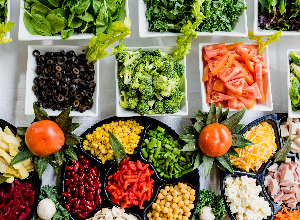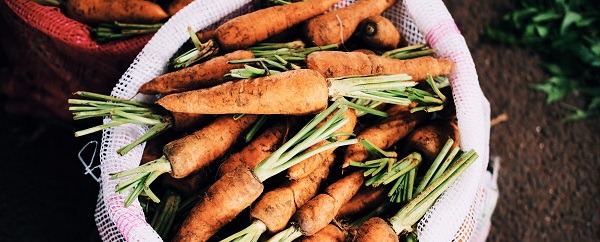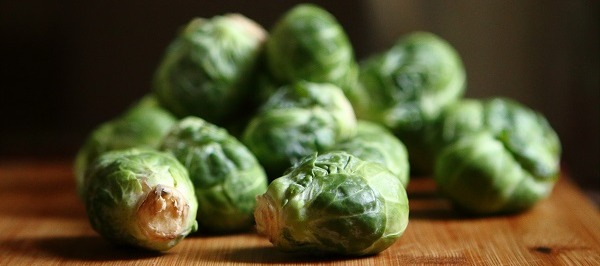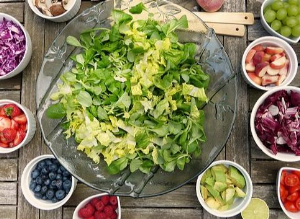The 10 best vegetables for your health
Published Aug 1, 2018 • Updated Aug 18, 2020 • By Léa Blaszczynski

Tomatoes
Rich in vitamins A, B3, B6, C, E, K, copper, manganese and potassium, tomatoes are among the best vegetables for our bodies.
It is also rich in lycopene, an antioxidant that contributes to the prevention of certain cancers, especially prostate cancer. In addition, a major study conducted among women has shown that the more tomato products they consume, the more they reduce their risk of cardiovascular disease.
Broccoli
A vegetable of the cruciferous family, broccoli is an excellent source of vitamins C and K and a good source of vitamins A, B2, B5, B6, B9, E, copper, iron, magnesium, manganese, phosphorus and potassium.
Consumed several times a week, broccoli in particular may be associated with a lower risk of colorectal, stomach, lung, prostate and breast cancer in pre-menopausal women. It has also been shown to increase the chances of survival for bladder cancer.
In addition, consuming five or more servings of broccoli per week (one serving = 125 ml cooked broccoli or 250 ml raw broccoli) in women has been shown to significantly reduce the risk of death from cardiovascular disease.
Finally, several studies indicate that a regular intake of lutein and zeaxanthin, two carotenoids found in abundance in broccoli, is associated with a lower risk of macular degeneration and cataracts.
Spinach

Spinach, but also other dark green leafy vegetables contain vitamins B9, B6 and K, beta-Carotene, fiber, magnesium, phosphorus, potassium, zinc, calcium and manganese. They also contain iron, but in smaller amounts than previously thought.
Their pigments, lutein, chlorophyll and xanthine, have antioxidant properties that help fight free radicals. Lutein and zeaxanthin are also believed to have beneficial effects on eye health and may help prevent certain cancers, particularly breast and lung cancer.
Spinach also contains betaine, a nitrogen compound that may help treat liver diseases such as fatty liver and may reduce levels of homocysteine, an amino acid that is a risk factor for cardiovascular disease if too much of it is present in the blood.
Onion
Onions are believed to contribute to cardiovascular health through their sulphur compounds and other antioxidant substances. These compounds may help lower cholesterol and blood pressure and may also play a role in their anti-platelet activity.
A few epidemiological studies suggest a link between onion consumption and a decrease in the incidence of different types of cancers such as colon, larynx, ovarian, brain, esophageal, pharyngeal and stomach cancer.
Garlic

Garlic is an excellent ally for people affected by high blood pressure because of its vasodilating properties. It also has antibacterial, antiseptic and antioxidant properties.
The sulphur compounds in garlic, released when it is cut, are associated with both cancer and cardiovascular disease prevention. It also helps promote good intestinal health thanks to the inulin it contains, a natural prebiotic.
Finally, vitamins A, B, C and E make it an immune system booster.
Beets
Thanks to its powerful antioxidant properties, beetroot is one of the so-called "superfoods". It is also a good source of vitamins A, K, B2, B9, fiber, calcium, magnesium, manganese, copper and iron.
In addition, it has been proven that beets help improve blood circulation by increasing the level of white and red blood cells.
Research has also indicated that the carotenoids in beet leaves may help prevent certain cancers, including breast and lung cancer, and may be associated with a lower risk of macular degeneration, cataracts and retinitis pigmentosa.
Carrot

Carrots are very rich in provitamin A (or beta-Carotene), which acts both as an antioxidant and as a precursor of vitamin A, essential for cell growth, vision and good skin condition. Carrots are said to have the ability to lower cholesterol and triglycerides. It is also a source of vitamins B1, B2, B3, B6, C, K, E, iron, phosphorus and potassium.
In a study of over 120,000 women, it was concluded that those who consumed two to four servings of carrots per week had a 40% lower risk of lung cancer compared to those who did not. With consumption of five or more servings, the risk reduction was as high as 60%.
Peppers
Peppers are among the vegetables richest in vitamin C. It also contains beta-Carotene, which gives it a protective effect against the appearance of certain degenerative diseases associated with aging. In general, red peppers contain more antioxidants than green peppers.
Red peppers are an excellent source of vitamin A and a source of vitamins B2, B3, B5, B6 and copper. Green and yellow peppers are sources of vitamin B6, manganese and copper. Yellow peppers are a source of vitamin B9 and green peppers are a source of vitamin K.
Cabbage

Whether it is cauliflower, Brussels sprouts or red cabbage (which are all in the cabbage family), cabbage is a great ally in the prevention of cancer. Indeed, it contains glucosinolates, molecules that may help limit the development of breast and prostate cancer. However, glucosinolates are water-soluble substances, which means that they dissolve in water. Therefore, cabbage should not be cooked in too much water to maintain its beneficial health properties.
Cabbage is also a source of vitamins B1, B6, C, K, iron and manganese.
Leek
Leeks are a vegetable to be consumed at will because, in addition to being low in calories, they contain an antioxidant from the flavonoid family, kaempferol, which protects against damage caused by free radicals and gives them anti-cancerous properties. When eaten raw, leeks contain vitamins A, B6 and B9, C, copper and iron.
On the other hand, a study has shown that leek extract, when given to rabbits, resulted in a decrease in total cholesterol and LDL-cholesterol (the "bad" cholesterol). Flavonoids and saponins contained in leeks may play a role in these effects.
And you, do you eat any of these foods?
Passeport Santé
2 comments
You will also like

Spoon theory: What is it and how can it help people living with chronic illness?
Apr 13, 2022 • 7 comments


 Facebook
Facebook Twitter
Twitter



